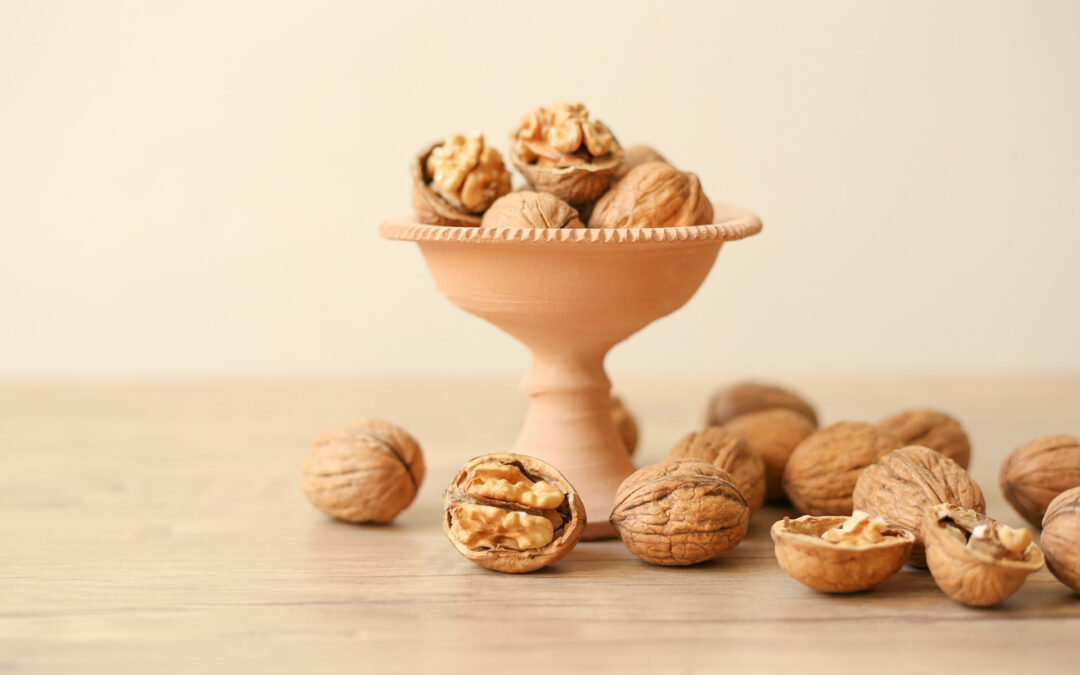La dried fruit, spesso indicata come frutta a guscio o frutta oleosa, è un alimento che merita un posto d’onore sulla nostra tavola. Gli esperti nutrizionisti ne raccomandano il consumo regolare durante tutto l’anno. Questo prezioso alimento, ricco di grassi “buoni” e povero di zuccheri semplici, rappresenta un’ottima scelta per una dieta equilibrata e sana.
But what makes dried fruit so special? Its nutritional profile is truly comprehensive: in addition to unsaturated fats, which are essential for our bodies, dried fruit is a concentrated source of fibre, vitamins (especially B and E vitamins) and minerals such as magnesium, potassium and zinc. This combination of nutrients makes it an extremely versatile and beneficial food for our health. Moreover, its crunchy texture and intense flavour make it an excellent option to start the day with energy, for example at breakfast.
A wide range of flavours and nutrients
La frutta secca a guscio ci offre una vasta gamma di sapori e texture, da cui scegliere in base ai nostri gusti. Tra le varietà più comuni troviamo noci, nocciole, mandorle, pinoli, arachidi, pistacchi, castagne e noci di cocco. Ognuna di queste presenta un profilo nutrizionale leggermente diverso, ma tutte condividono un’elevata concentrazione di nutrienti essenziali.
Concentrated source of 'good' fats
Come suggerisce il nome, questo alimento è ricco di grassi, che rappresentano circa il 90% del suo peso. Tuttavia, questi grassi sono principalmente di tipo insaturo e polinsaturo, in particolare gli omega-6 e gli omega-3, noti come “grassi buoni”. Questi acidi svolgono un ruolo cruciale nel mantenimento della salute cardiovascolare, contribuendo ad abbassare i livelli di colesterolo “cattivo” nel sangue e riducendo il rischio di malattie cardiache.
Beyond fat: proteins, vitamins and minerals
Dried fruit is not only a source of healthy fats. It also contains a good amount of protein, which is essential for tissue growth and repair. In addition, it is rich in B and E vitamins, powerful antioxidants that protect cells from free radical damage. It is also an excellent source of minerals such as magnesium, potassium, iron and calcium, which are essential for the proper functioning of many biological processes.
Energetic and versatile
Nonostante l’elevato contenuto calorico, può far parte di una dieta equilibrata e sana. Le fibre presenti nella frutta secca favoriscono la sazietà e regolarizzano il transito intestinale. Inoltre, è naturalmente priva di glutine, rendendola adatta all’alimentazione dei celiaci. Grazie alla sua versatilità, può essere consumata come spuntino, aggiunta allo yogurt, ai cereali o utilizzata per preparare dolci e piatti salati.
When and how to consume dried fruit
Despite its numerous benefits, it is important to consume dried fruit in moderation. Its high calorie content makes it an energy food, preferably eaten away from main meals and in controlled portions. It is inadvisable to eat it in abundance in the evening before going to bed, as its digestion may be slower and weigh down the stomach.
A valuable ally for every moment of the day
A real health boon, it can be a valuable ally on many occasions. At breakfast, it provides the energy needed to get through the day. As a snack between meals, it helps keep hunger at bay and prevent throat attacks. It is also an excellent source of energy for athletes, students and pregnant women, who benefit greatly from its many nutritional properties.
But dried fruit not only nourishes the body, it also nourishes the mind. Thanks to its rich content of polyunsaturated fatty acids, particularly omega-3, nuts help maintain a healthy brain and improve cognitive function. These fats are essential for the structure of the brain's cell membranes and are involved in numerous neurotransmitter processes. Regular consumption of nuts can help prevent age-related cognitive decline and reduce the risk of neurodegenerative diseases such as Alzheimer's.
To maximise the benefits for the brain, consider these tips:
- Varying consumption: include different types of dried fruit in your diet to benefit from a broad spectrum of nutrients.
- Consuming daily: even small portions of dried fruit can provide significant benefits for brain health.
- Combine with other foods: combine dried fruit with other antioxidant-rich foods, such as fresh fruit and vegetables, to enhance the protective action on the brain.
When to be careful with dried fruit consumption
Despite its numerous benefits, dried fruit is not suitable for everyone. Those suffering from digestive diseases, such as colitis, Crohn's disease or irritable bowel syndrome, should limit their consumption or consult their doctor. The high fibre content, although beneficial for many, can irritate an already inflamed intestine.
Dried fruits and specific conditions
Those who have diabetes, kidney problems or are on a low-calorie diet should also pay attention to the consumption of nuts. It is therefore advisable to consult a nutritionist to customise one's diet plan.
In conclusion, dried fruit is a valuable food for your health. Why not try our carefully selected and tasty dried fruits? Visit our online shop and discover the wide range of products available.





